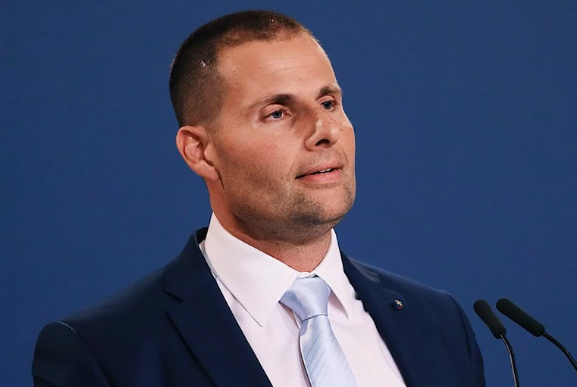“In the second quarter of this year, the Maltese economy registered its highest ever growth rate spurred by the largest absolute amount of investment ever recorded. Malta was one of the few economies to see its employment rate rise”.
It is a pleasure for me to be addressing today’s Business Forum. Unfortunately, I was unable to join you in person as I am attending the European Council currently taking place in Brussels. A Council meeting that will tackle issues that are very closely linked to the subjects you will be discussing in today’s forum – like trade, and the developments in the international energy markets. These are subjects that directly affect our competitiveness, and therefore our attractiveness. Speaking about attractiveness, I want to start this short intervention today by tackling first the importance we attribute as a government to business. We want to have our ears on the ground, and understand the realities the business community faces.
In fact, I enjoy engaging with the local business community and encourage debate on issues of interest and relevance. I believe that this dialogue, through events such as today’s, enables us to move forward as a country, which is a shared priority and objective for us all. Indeed, the last two years have been tough for businesses based in Malta, and those overseas. The pandemic stopped the world economy in its tracks and impacted the flow of goods and services rather heavily. Being one of the most open economies in the world, the pandemic could have wreaked havoc on our local businesses.
We all remember that very stark predictions of 55,000 unemployed were made. Yet, the Maltese economy withstood the test of the pandemic, and is emerging as one of the front runners of the global recovery. In the second quarter of this year, the Maltese economy registered its highest ever growth rate spurred by the largest absolute amount of investment ever recorded. Malta was one of the few economies to see its employment rate rise. We currently have our lowest ever unemployment rate and the lowest ever percentage of our population at risk of poverty and social exclusion. And how did we achieve all this?
These positive results reflect the policies that we implemented to keep economic confidence high even at a time of great crisis. We were very clear with businesses that we were going to do everything we could, to keep the productive capacity of our nation intact. We did this by establishing a well-thought wage supplement scheme, as by effectively covering completely the salaries of those on low wages, Government was able to safeguard them from being made redundant. Usually in recessions it is low-income employees who get fired first. The resulting decline in aggregate demand then leads to other workers to be fired next. Therefore, the design of the wage supplement we implemented, ensured this cycle of redundancies does not take place. While protecting our past success in increasing employment rates, we worked even harder to continue attracting direct investment.
As a result, Malta Enterprise approved the highest amount of local investment projects and foreign investment projects in history, with a combined €140 million in new projects that will generate nearly 2,000 new jobs. This is however only part of the investment inflows that we observed in 2020.
Last year, there were inward direct investment flows of nearly a third of a billion Euro. On the other hand, manufacturing, transportation, accommodation and real estate saw smaller new inflows compared to 2019, but they still expanded.
FDI flows in information and communication, professional, scientific and technical activities and in remote gaming were even stronger in 2020 than in 2019. By the end of 2020, if one excludes financial services flows, the value of Foreign Direct Investment assets in Malta amounted to €4.6 billion, nearly double what it was at the start of the previous legislature.
Now that we managed to safeguard our economy’s productive capacity, we are very much looking forward to building a new prosperity for our nation. We are putting in place various measures aimed at upskilling our workforce, including the introduction of a training fund that supports the internally organised training efforts of finance firms. We want to create the right incentives to stimulate a shift in the investment of our firms, in particular towards a greener and more sustainable economy, as we aim to drastically reduce our greenhouse gas emissions by 2030, and achieve carbon neutrality by 2050.
That is why we introduced several schemes to help firms shift to more environmentally friendly modes of transport. We have put initiatives in place that support research and development in green and digital technologies, as part of our effort to reach our green objectives. And to help sustain these changes we are aiming for, we are also carrying out an extensive public investment programme which will create the right conditions for local firms to shift towards the provision of green and digital services.
At the same time, we will continue supporting firms in their investment strategies. Firms that invest part of their retained earnings will now earn tax credits. Similarly, groups of companies where one of the firms registered a loss and therefore could not utilise its tax credits, have now been given the possibility to use these tax credits on other firms, within the same group of companies. The other area where we are devoting considerable resources is on the improvement of our governance structures.
We have implemented unprecedented reforms, and I am pleased that good and steady progress is being registered in the implementation of the action plan agreed with the FATF. The credibility of our efforts is confirmed by the fact that four major rating agencies confirmed their A rating for Malta, with our rankings being the best in a decade.
Next year we are forecasting that our economic growth will reach 6.5%, with growth converging to 4.5% by 2024. These numbers may sound somewhat high, but rest assured, that these forecasts will be proven right. With a positive and strong economic sentiment in all sectors, prospects for the future are looking good. This is particularly true because we have made a conscious choice to support firms. Not just through grants and tax credits, but through measures that create incentives for people to work.
We have lowered the tax on part-time work, that on overtime, and are reducing the tax burden on working pensioners. At the same time, we are providing stronger support to our students so that they continue to enhance their skill set – a commitment that was demonstrated by the increase in stipends.
Ladies and gentlemen, we have set our sights towards the future.
I, as Prime Minister and together with my government, stand committed to make a success of our nation’s green and digital transformation.
With the support of all stakeholders, including yourselves, we can build a more dynamic, sustainable, and socially just Malta which generates the best opportunities for workers and firms alike.
A Malta that we want to deliver to our children, and future generations of this country.
File photo: PM Robert Abela










